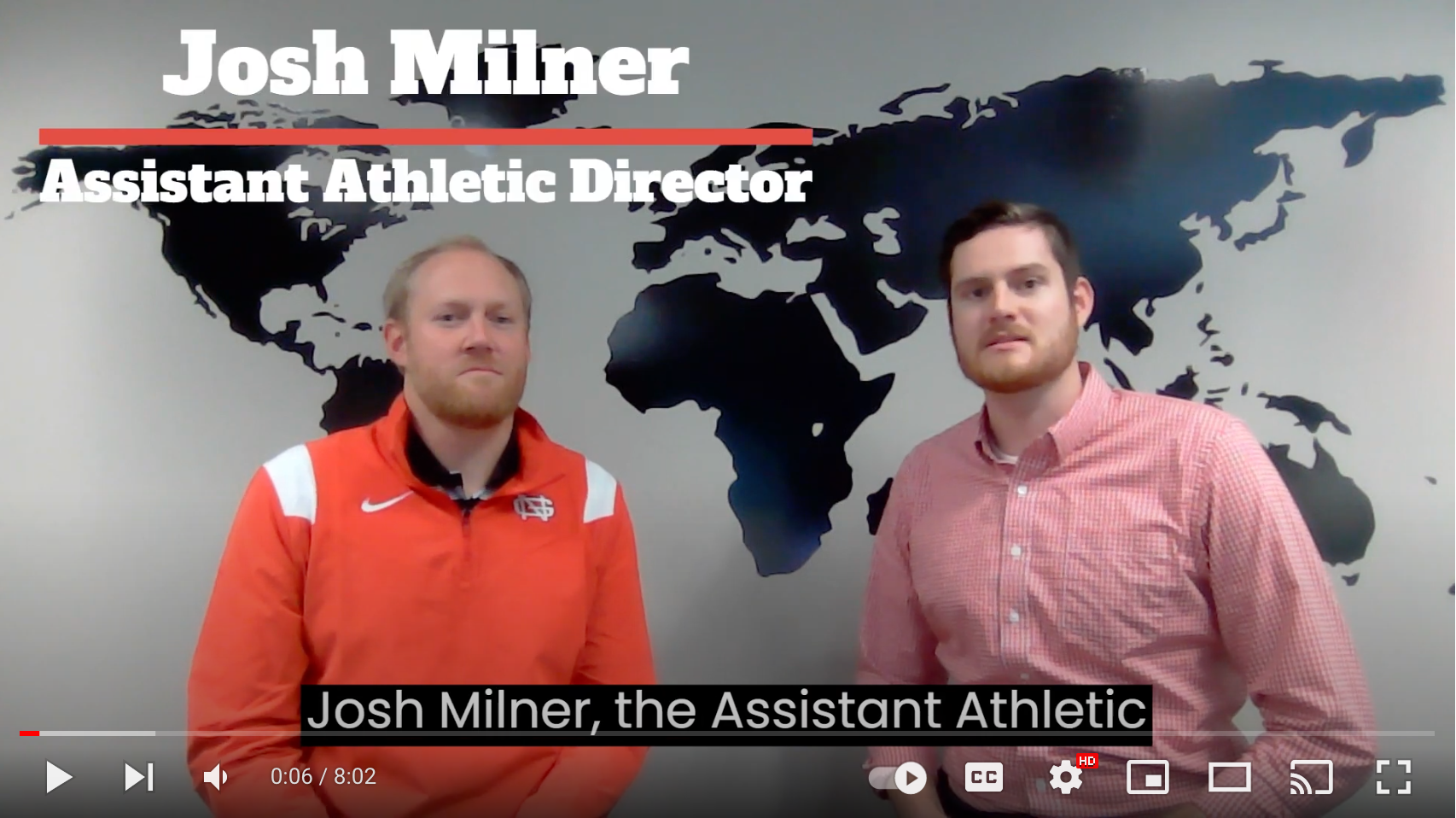We recently had the opportunity to sit down with North Greenville University Assistant Athletic Director Josh Milner. Josh is a long-time Greenville resident and has been involved with sports since a young age. He served as a Student Assistant and Graduate Assistant Strength and Conditioning Coach at Clemson University before transitioning to an Assistant Basketball Coach at North Greenville University, where he coached for over a decade. In recent years he has transitioned to the Assistant Athletic Director role working directly with coaches, student-athletes, and spectators in the day-to-day operation of the athletic program. Over the years, Josh has spent a great deal of time speaking with high school athletes, parents, and coaches while recruiting and working at several camps across the country.
During our conversation, Josh shares his opinion about youth athletics. Over the years, society, technology, and social media have changed youth athletics. Parents are now paying whatever is needed to give their children the opportunities they feel they need. In the past local sports were a bigger deal, now more and more youth are playing travel sports. Money is a much larger factor in sports now.
Weigh the cost
Many parents are traveling with their kids for sports. The biggest expense for parents with youth sports is the traveling aspect. Gas, Hotels, Flights, and Team Fees are all huge costs that they incur. Thankfully those of us in Greenville live close to many of the youth sports hubs, but some parents travel from Michigan to Atlanta for sporting events. There was a study done about a year ago that shows 60-65% of families believe their biggest financial strain comes from youth sports. The travel involved with sports now is a huge change and has become a strain for many families.
Josh provides some great suggestions to relieve that financial strain for many families. He reminded us that 80 million youth play sports in the US, but there are only 500,000 NCAA athletes across all divisions. That is less than 1%. Stay aware of your child’s ceiling and where they need to be playing. That may mean choosing a local rec sports league instead of a serious travel team for your 10-year-old. At young ages, they need to be focused on team chemistry, building relationships, and having fun.
This is not only something parents need to think about but also youth coaches and organizers. Many parents feel they must put their child in travel sports because they are hearing that their child must play travel ball to have a chance to make their local middle or high school team. This is a trickledown effect that is leading to financial strain. Parents must trust their gut, know which coaches to listen to, and do their own digging and research. Although, it may be hard for a parent to determine if their child has an athletic future because we all want that for our child.
Finding Balance
Don’t let the world create a financial strain for you. Be a good financial steward for your child. Save for their future needs like a car or college. Just because you put in the financial investment in travel ball does not mean you will get your return on investment. Remember, only 1% of youth sports play at the collegiate level, and out of those college athletes, only about 80% receive athletic scholarships. That is a very low odds of getting a return on your investment in travel sports. Invest and save to build your financials so you can assist them down the road.
Opportunity for a financial lesson
Youth sports are a great place for your children to build quality characteristics, so it is a great place for you to invest your time and some money. But be smart about it. There are individuals that take loans out to fund their child’s youth sports, and that does not need to be you. There are much wiser moves to make with your money. There are so many local opportunities that are a great starting place for most children. Let your Financial Advisor help you budget for youth sports and determine if you can make small changes to prevent future debt or hindrance to your financial future.




.jpeg)


.jpeg)


